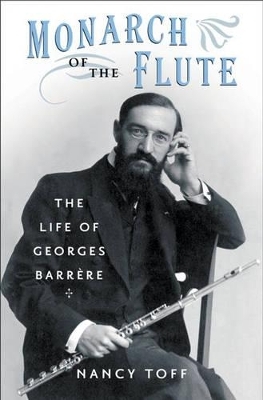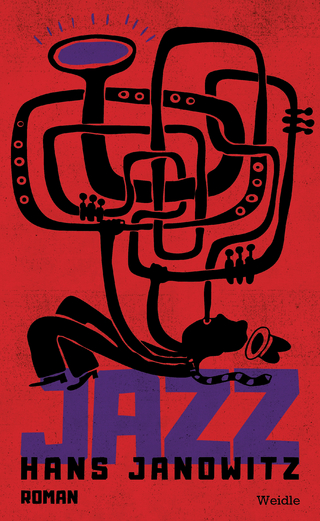
Monarch of the Flute
Oxford University Press Inc (Verlag)
978-0-19-517016-0 (ISBN)
Georges Barrère (1876-1944) holds a preeminent place in the history of American flute playing. Best known for two of the landmark works that are dedicated to him--the Poem of Charles Tomlinson Griffes and Density 21.5 by Edgard Varèse--he was the most prominent early exemplar of the Paris Conservatoire tradition in the United States and set a new standard for American woodwind performance.
Barrère's story is a musical tale of two cities, and this book will use his life as a window onto musical life in Belle Epoque Paris and twentieth-century New York. Recurrent themes are the interactions of composers and performers; the promotion of new music; the management, personnel, and repertoire of symphony orchestras; the economic and social status of the orchestral and solo musician, including the increasing power of musicians' unions; the role of patronage, particularly women patrons; and the growth of chamber music as a professional performance medium.
A student of Paul Taffanel at the Paris Conservatoire, by age seventeen Barrère premiered the landmark Prelude to the Afternoon of a Faun. He went on to become solo flutist of the Concerts Colonne and to found the Societe Moderne d'Instruments a Vent, a pioneering woodwind ensemble that premiered 61 works for 40 composers in its first ten years. Invited by Walter Damrosch to become principal flute of the New York Symphony in 1905, he founded the woodwind department at the Institute of Musical Art (later Juilliard). His many ensembles toured the United States, building new audiences for chamber music and promoting French repertoire as well as new American music. Toff narrates Barrère's relationships with the finest musicians and artists of his day, among them Isadora Duncan, Yvette Guilbert, André Caplet, Paul Hindemith, Albert Roussel, Wallingford Riegger, and Henry Brant. The appendices of the book, which list his 170 premieres and the 50 works dedicated to Barrère, are a resource for a new generation of performers.
Based on extensive archival research and oral histories in both France and the United States, this is the first biography of Barrère. It is being published in conjunction with the centennial of his arrival in the United States in May 1905.
Nancy Toff is author of The Flute Book and The Development of the Modern Flute and is a past president of the New York Flute Club.
Introduction
1: The Fifer, 1876-93
2: The Faun, 1893-94
3: The Jeune École, 1895-98
4: Fin de Siècle, 1898-99
5: 1900: In the Vanguard of Progress
6: The New Century, 1901-05
7: 1905: Enter Walter Damrosch
8: The World of the Damrosch Brothers, 1905-09
9: "A Musical Envoy from France," 1909-12
10: Yankee Entrepreneur, 1913-15
11: Alliances Françaises, 1915-17
12: Over Here, 1917-18
13: "The World's Greatest Flutist," 1918-21
14: "Pan Himself," 1921-26
15: "The Casals of the Flute," 1926-28
16: Jubilee, 1929-30
17: "I Heard The Great Barrère," 1931-36
18: "The Last Word in Chamber Music," 1936-40
19: "The Last Survivor," 1940-44
Epilogue: Monarch of the Flute
Appendix 1: Works Dedicated to Barrère and His Ensembles
Appendix 2: Works Premiered by Barrère and His Ensembles
Notes/ Bibliography
| Erscheint lt. Verlag | 1.9.2005 |
|---|---|
| Zusatzinfo | 12pp halftone plates |
| Verlagsort | New York |
| Sprache | englisch |
| Maße | 235 x 166 mm |
| Gewicht | 780 g |
| Themenwelt | Literatur ► Biografien / Erfahrungsberichte |
| Kunst / Musik / Theater ► Musik ► Instrumentenkunde | |
| Kunst / Musik / Theater ► Musik ► Klassik / Oper / Musical | |
| ISBN-10 | 0-19-517016-4 / 0195170164 |
| ISBN-13 | 978-0-19-517016-0 / 9780195170160 |
| Zustand | Neuware |
| Informationen gemäß Produktsicherheitsverordnung (GPSR) | |
| Haben Sie eine Frage zum Produkt? |
aus dem Bereich


